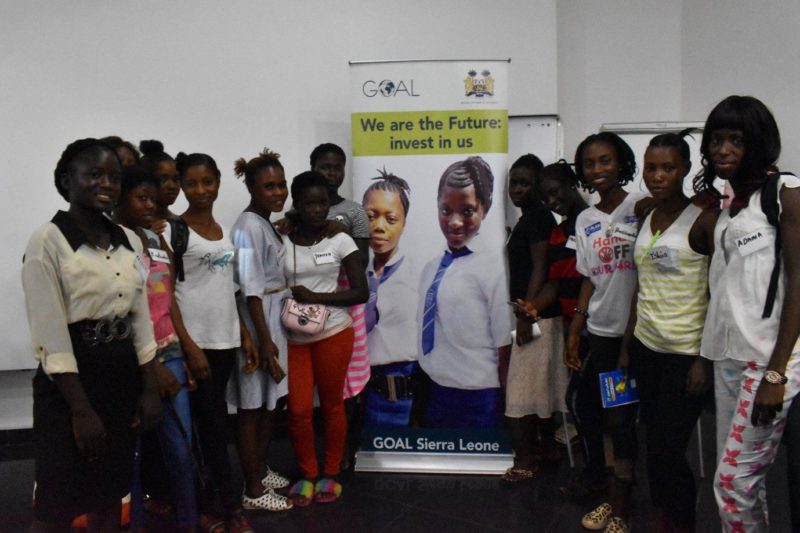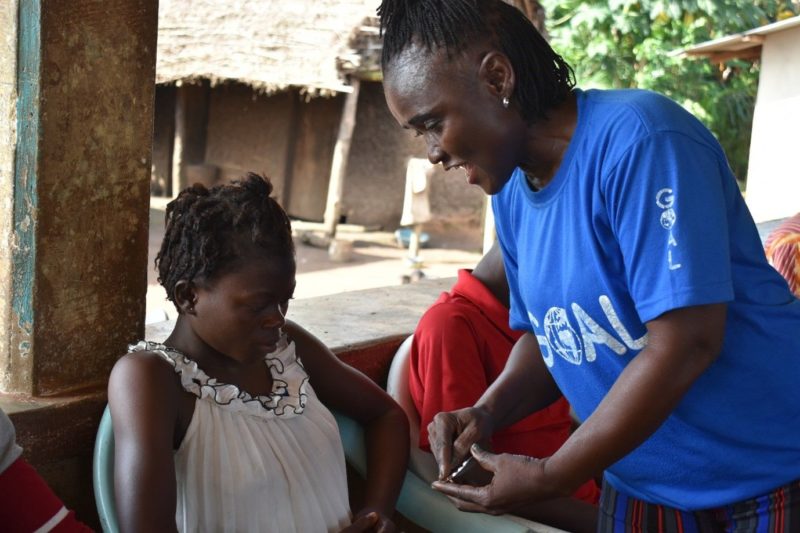 Blogs
Blogs
March 3, 2021 • 2 min read
Owolabe (19) lives in Kenema, a province in South-East Sierra Leone. She was only 14 years old when she became pregnant by a man three times her age.
Due to the pregnancy, Owolabe had to drop out of school and her family kicked her out of home. She had no option but to move into the house of the father of her child. He promised to send Owolabe back to school after giving birth, but he turned abusive soon after she moved in.
“As my pregnancy developed, my boyfriend started mistreating me. He refused to provide food and didn’t care any longer for me. I cried day and night until I gave birth. He beats, molests and abuses me and starves me of food. I work for neighbours to earn money to have enough to eat.”
Owolabe is now sharing her experience with other young girls as part of GOAL’s Adolescent Sexual & Reproductive Health (ASRH) services, funded by Irish Aid, and aimed at tackling the serious sexual health crisis amongst teenage girls in Sierra Leone. GOAL regularly engages adolescents on these issues to understand the current issues on-the-ground, and so adolescents hear from fellow adolescents on issues such as teenage pregnancy.
Sierra Leone has one of the highest rates of adolescent pregnancy in the world, where over 30% of girls give birth before reaching 18 years. A vast 20% of these girls die, some as young as 12.
Research shows that Sierra Leone is one of the most dangerous places in the world to be pregnant and give birth. At present out of 100,000 live births 1,165 mothers die, a maternal mortality rate that is 145 times plus higher than in Ireland.
For social and cultural reasons young girls in Sierra Leone are actively discouraged from accessing sexual and reproductive health services and information. With girls as young as twelve falling pregnant, GOAL is working to break through these barriers and provide accurate information to teenagers.
“I have started talking to adolescent girls who are sexually active, encouraging them to visit health facilities to get advice on contraception to prevent unwanted pregnancy. Contraception is a form of female empowerment.”

Kenema in community dialogue session with a GOAL facilitator demonstrating contraceptive methods
The importance of reaching these young girls is a continued need in Sierra Leone, especially in rural settings where GOAL have a long-standing relationship with the community – and it is imperative this continues.
As Owolabe highlights, “Many girls like me are hard to reach as we live in rural communities. We need to be able to access support to help us get away from the hands of cruel men. I am thankful to GOAL and our Community Mobilizers for making it possible for my voice to be heard.”
